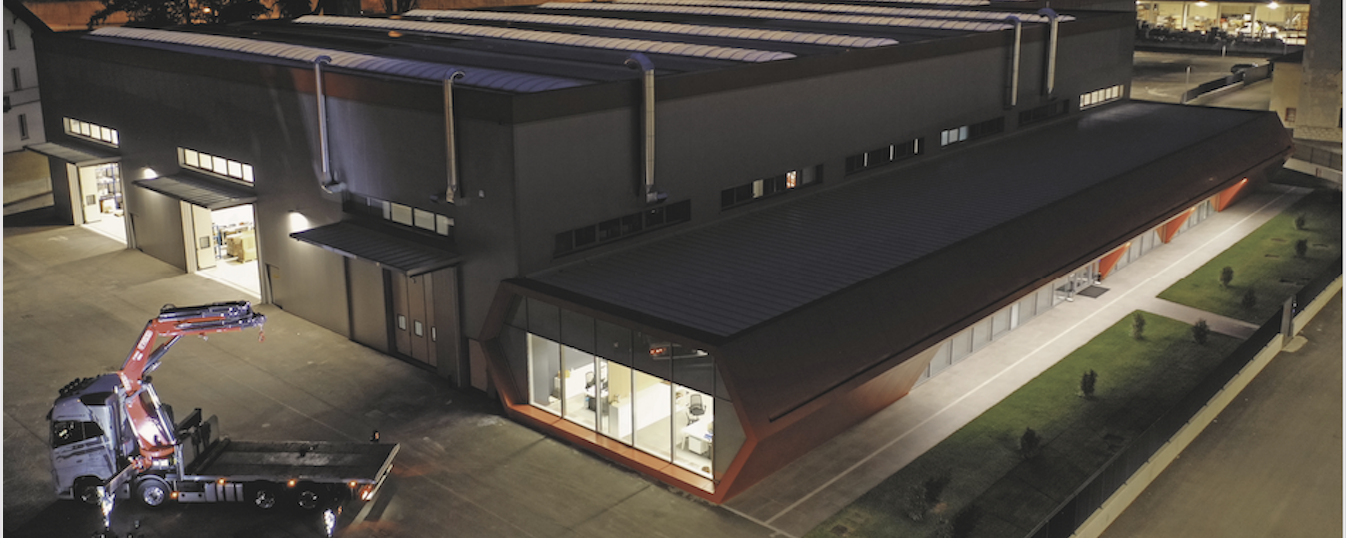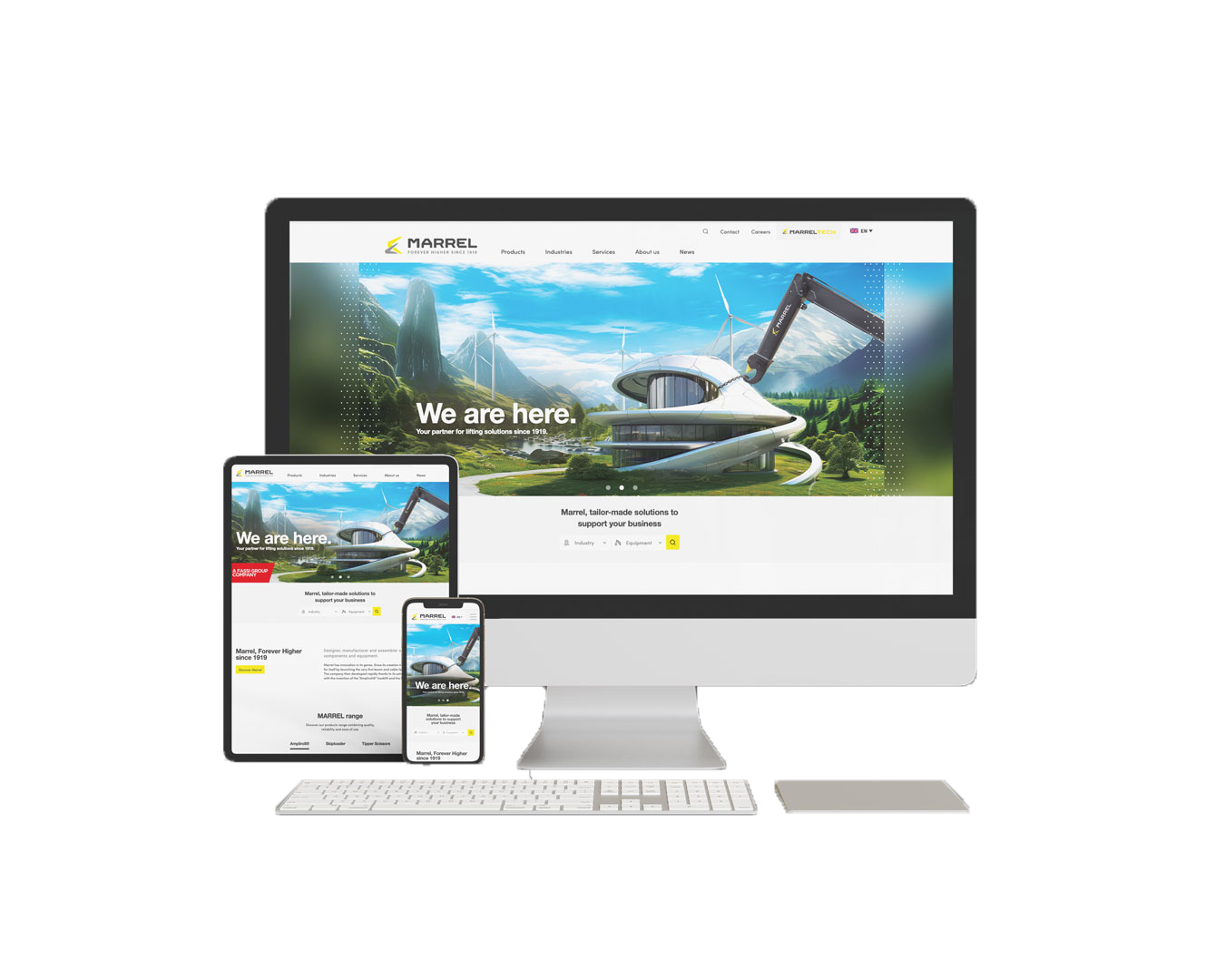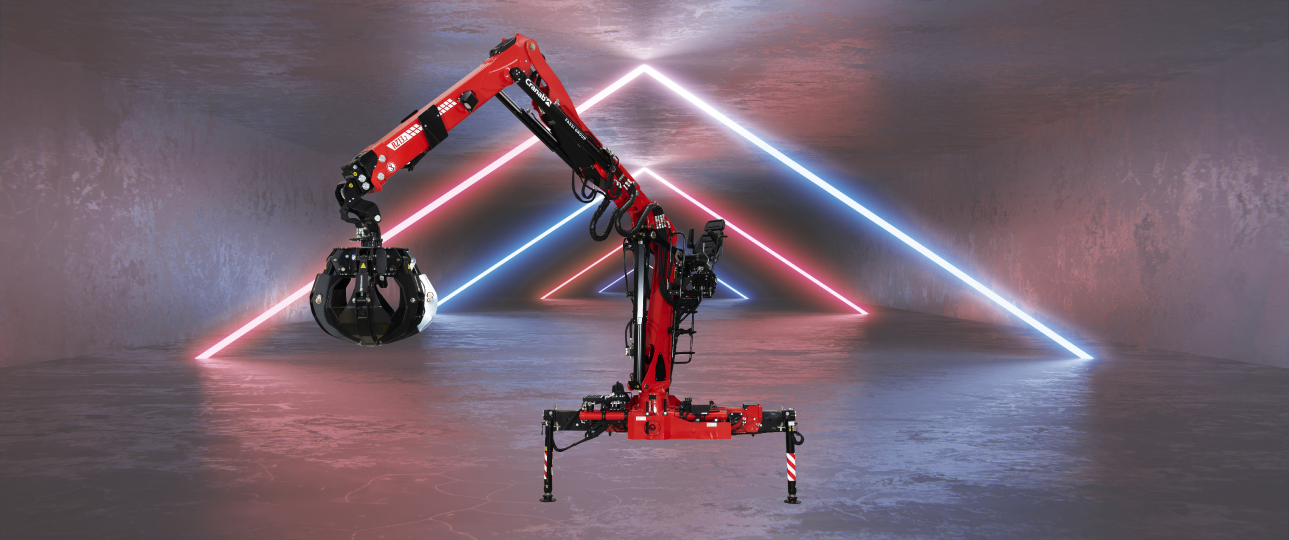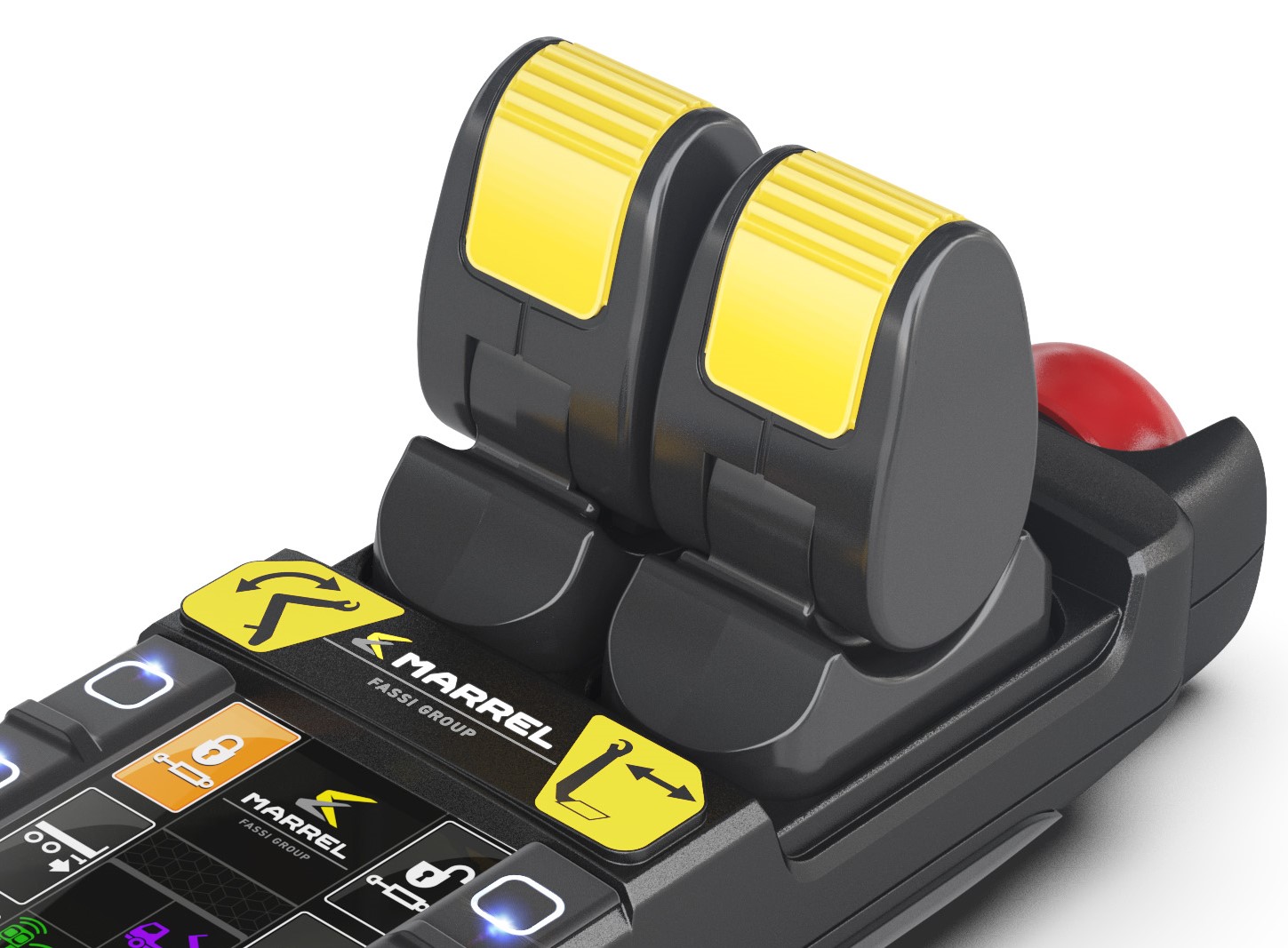The new technology hub of the Fassi Group: between sustainability and innovation

The 11,500 square-metre space in the new Fassi Technology Hub conveys the essence and embodiment of what has always been the vocation and work of the group: constantly investing in research and development, identifying and experimenting with unexplored solutions. Giovanni Fassi and Rossano Ceresoli tell us all in this double interview.
Giovanni Fassi
President of the Fassi Group
“Leader in innovation” is not just a claim for Fassi but it is a real building block of the company and of the group as a whole. How does the new technology centre fit into this path towards innovation that began 55 years ago?
Fassi has been a pioneer from the outset. My father Franco Fassi was in charge of assembling and repairing trucks in the family workshop. After studying the sector and the technology of the time in depth, he decided to take a new path by focusing on articulated cranes. He wanted to focus on change and innovation, two cornerstones that are part of our DNA. Over time, this spirit has led us to become leaders in a multi-sector, multi-market and multi-product context. We can even anticipate future needs, because we are convinced that innovation is not satisfied with finding answers, but goes in search of new questions. The new Technology Hub is the natural evolution of this ideology we have always had. It is a place dedicated to research and development, to creating and designing machines and hi-tech systems. We created it to identify and experiment with unexplored solutions, a space open to all group companies (Fassi, Cranab and Marrel), where our technicians transform projects into prototypes, testing their potential and performance.
What are the cornerstones of Fassi innovation?
There are basically four: safety, performance, usability and sustainability. Safety is a constant in all our products and operations, it is the pillar of our philosophy. We have always worked with the aim of providing the user with the possibility of making the most of the machine’s potential, while always operating in maximum safety. All the systems and technology we have developed in recent years are centred around this. Relative to safety is performance, that is, the ability to manage power exactly when and as needed, based on individual operations and applications. This is why we work to design innovative devices that revolutionise the very idea of “power”, now controlled with greater precision and better disposed to assist in various lifting, handling and load rotating operations. Another important objective is the usability of our cranes, understood as effectiveness and efficiency which translate into satisfaction and saved time for the end user. And in this, continuous research and the evolution of technology have given us a great hand. A Fassi crane is able to perceive and interpret its surroundings and multiple work situations, even the most demanding, by activating devices that make the operator’s work more serene, quick and effective. Sustainability is a concept inherent in the very principle of innovation. It is no longer possible to think of innovation without it being sustainable: it is a promise we intend to make to future generations. For us, a project, a product, an idea become sustainable when they satisfy current needs without compromising the ability of future generations to satisfy their own.
Delving further into the theme of sustainability, understood to mean ‘responsibility’: how do you combine technology with sustainability?
Technology is at the service of man. And man cannot express himself only from a modern perspective. It is necessary to think about the effects that technology and innovation can produce in the perspective of tomorrow. For this reason, when tackling a Research and Development project it is necessary to adopt a stance of responsibility towards the future. And responsibility also requires tangibility, practicality, effectiveness in implementing continuous measures. Thanks to exclusive technology, these measures can improve the optimisation of raw materials and processes, in order to reduce the impact deriving from the production and subsequent use of the product. It is necessary to constantly increase the quality of technology so that it becomes synonymous with sustainability: from the beginning of the supply chain to the routine and unscheduled maintenance of cranes operating all over the world.
For over 50 years, Fassi has been manufacturing each crane to respond to specific market demands, often anticipating their needs. Thanks to the work that will be carried out every day within the new technology hub, what new needs will be anticipated?
This is a complex issue because it concerns a wide range of points of view. But in principle, the prospects related to future needs concern the same cornerstones at the base of our innovation principles that I have already mentioned: safety, performance, usability and sustainability. These are obviously the bases of the specific sectors of use of the crane, sectors which I believe can be further expanded. In terms of new needs, I would like to reflect on the opportunities that can be derived from the potential and progressive use of artificial intelligence which can, for example, be put at the service of the operator to install and manage the crane with even greater levels of safety, ease of use, increased performance and consumption optimisation.
Rossano Ceresoli
Research & Development Director of the Fassi Group
The new technology hub represents the concrete realisation of Fassi’s entrepreneurial intention to constantly invest in research and innovation. Can you tell us about the genesis of this important project?
‘Fassi: Leader in Innovation’ is not simply a slogan but our identity, our vocation. This is where the genesis of the new hub, the Fassi Innovation Centre, was born. For some time, a solution had been sought within the Albino offices, but the continuous and strong growth of the various departments has always delayed its genesis. Hence the choice, albeit a little painful in having to leave the Albino headquarters, to find an area close to the other Fassi Group sites nearby (Nembro). The possibility of being able to design on a blank canvas, without constraints but with the sole aim of creating not in an R&D office but in a real innovation hub, was the gateway to everything.
What happens inside this new hub?
On the large wall of the showroom inside the new hub, under the large FASSI logo, is written “We make Innovation”. That’s what we do, in the various declinations of the specific features of Fassi products; in the various technologies that we apply to our machines. Since the 2000s, cranes have become systems that integrate various technologies and specialisations: mechanics and metallurgy for the structure, hydraulics for power and movement, electronics for safety and control. They are real mechatronic systems. It is therefore with continuous research in these sectors and the ability to integrate them in the appropriate way that we evolve and innovate our products. The ultimate goal is certainly to satisfy the demands of our customers, but also to anticipate them by creating real new needs.
What direction is Fassi’s research going in?
The world we always look at with great interest is the automotive sector. It certainly anticipates the new paradigms of mobility and sustainability. In this sense, if we think of autonomous driving, we have to imagine a solution where the absence of a driver means therefore the absence of the crane operator. For this reason, last October at Bauma 2022, we presented the first long-distance teleoperation from Munich of one of our cranes in the Point of Dalmine, making use of new technology for our sector and Starlink satellite connectivity.
For sustainability, we have developed a power pack with lithium batteries, capable of allowing the use of our crane for several consecutive hours in full electric conditions, with the vehicle engine completely off; creating no emission of noise pollution and maintaining essential silent conditions.
What is the future of the world of lifting that Fassi is literally planning and building within the technology hub?
The innovation that we have described up to now is supported by the core development of FASSI, i.e. the continuous proposal of new products, which for some time have not only been cranes for lifting, but cranes for timber and scrap with the Cranab brand,
multi-terrain cranes mounted on crawlers under the Jekko brand, demountable hooklifts for moving bins and containers under the Marrel brand and sensors and electronics under the TSM brand.


